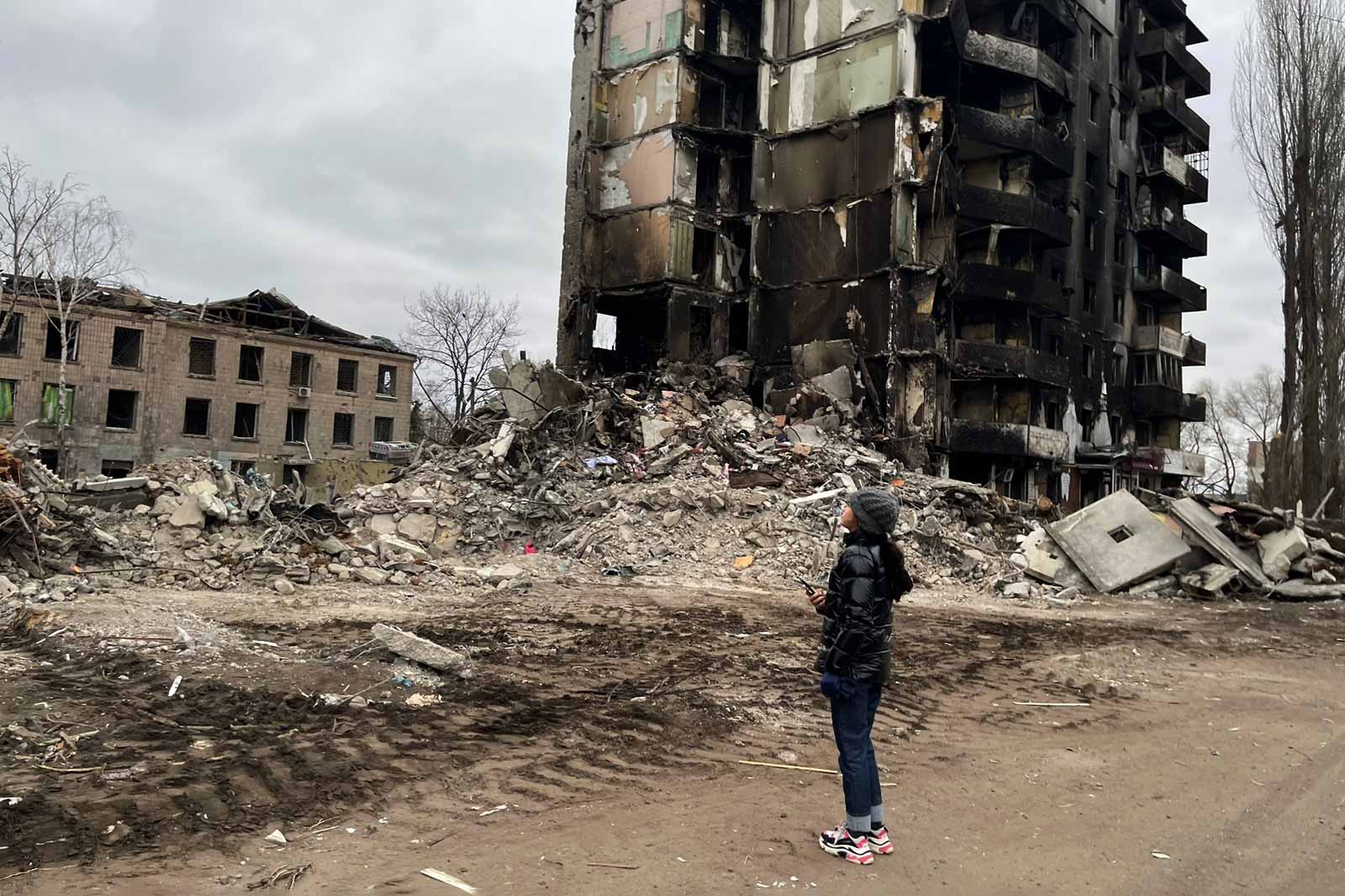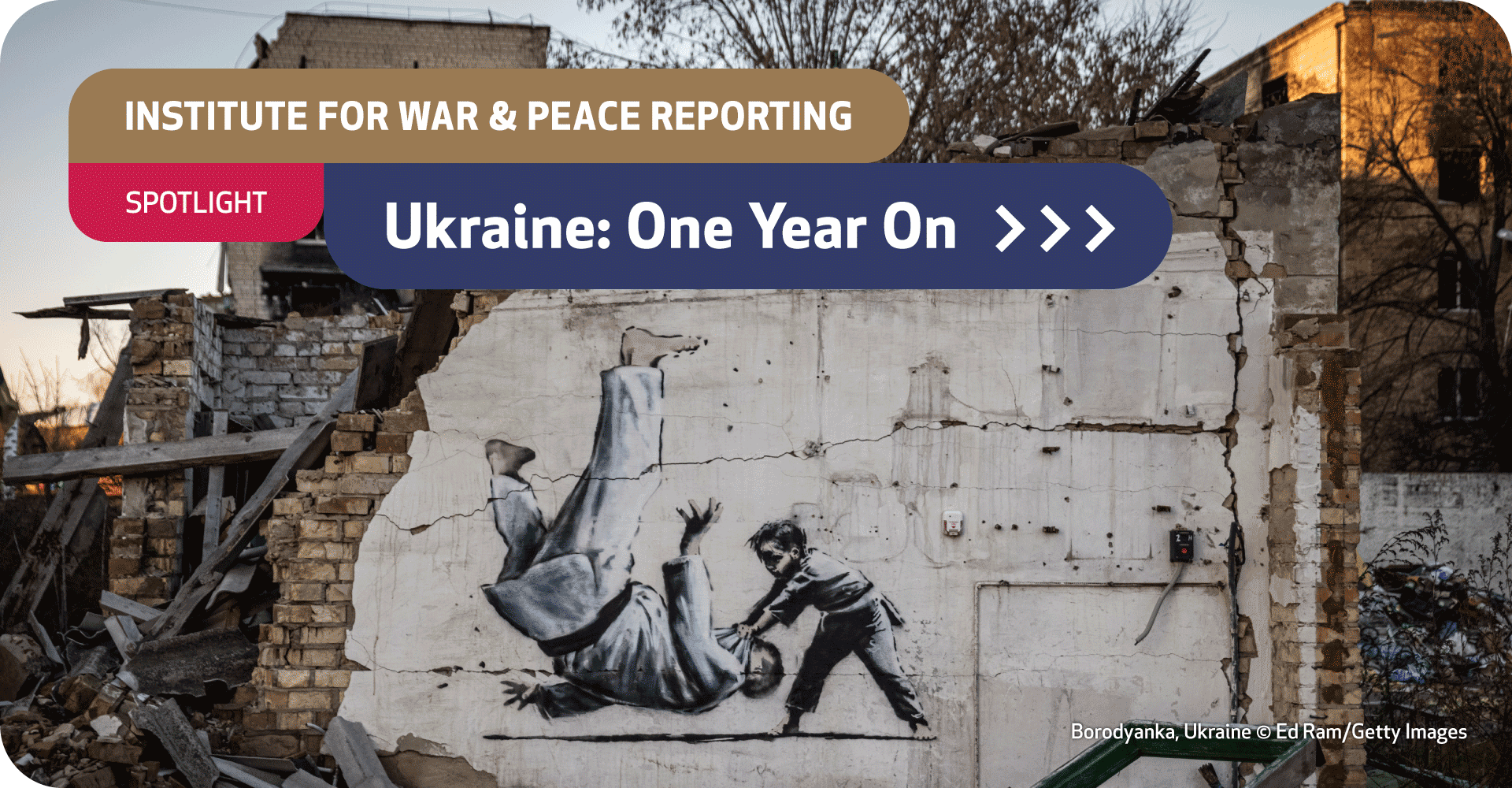Musaieva: “Without Courage, Journalism Dies”
The chief editor of Ukrainska Pravda, Ukraine’s oldest online newspaper, on the cost of propaganda and the value of investigating corruption.
Sevgil Musaieva, editor-in-chief of Ukrainska Pravda - the country’s oldest online publication - has no doubt that the scale of the current war is the result of years of disinformation.
“Our words about Russian propaganda dehumanising and lying about Ukrainians have not been heard,” the 35-year-old told IWPR, adding that such lies had helped justify the invasion. “They kill Ukrainians because, for decades, their propaganda has described Ukrainians as Nazis; Russian soldiers kill civilians guided by this principle.”
A Crimean Tatar born in Uzbekistan and raised on the peninsula, Musaieva became an activist during the Euromaidan protests of 2014. She co-founded the Internet project Krym_SOS after Russia’s annexation of Crimea the same year and was appointed at the helm of Ukrainska Pravda, meaning Ukrainian Truth, that October.
The paper was founded in April 2000 by journalist Georgiy Gongadze with a focus on political news and exposing corruption. He paid for this commitment with his life; he was murdered less than six months later after the paper launched.
Ukrainska Pravda has maintained this focus; despite the ongoing conflict it recently uncovered corruption among high ranks of various ministries that led to the dismissal of many officials.
“This is also a war between truth and lies.”
“Without courage, journalism dies. And courage is to report the war, but also expose corruption,” Musaieva said, adding that she felt a great responsibility to the audience for every word she published.
She had just left the paper’s new newsroom in Kyiv a few hours before the full-scale invasion began last February, having been editing an interview with Defence Minister Oleksii Reznikov. As Musaieva listened to Russian President Vladimir Putin’s speech announcing the war, she texted the newsfeed editor to prepare a news item. The headline was in red capitals. It was 4:57am. The team mobilised and they decided to launch an English language version. The first editorial was titled, “I am Ukrainian”.

Today, a team of about 100 people covers all aspects of the conflict, from fighting on the frontline to war crimes, from volunteer efforts to lists of oligarchs’ yachts. WIth a daily readership of about four million, twice the number of a year ago, Ukrainska Pravda provides vital information, also to Russians.
“The website is blocked in Russia, but we have readers who access it through a VPN. Therefore, we maintain a Russian version of our material, alongside the Ukrainian and the English ones,” she said, noting that not only Ukraine’s right to exist is at stake. “This is also a war between truth and lies.”
The Kremlin’s complex disinformation machine operated far beyond Russia, she noted.
“Its impact on Arab countries is huge; RT [formerly Russia Today] is the main source of information about the war in the entire Arab world,”Musaieva said. “It is also an influential voice in African countries. I recently returned from a conference in Latin America, where media representatives said that governments are not doing enough to block the Kremlin’s propaganda.”
Like any other Ukrainian, the last 12 months have presented her with innumerable challenges: from her team’s safety and security to the outlet’s financial support to how to operate amid power outages caused by Russian shelling. Human losses, however, were the hardest to bear.
“The worst is when you lose someone close to you. My father's colleague was shot in Bucha; I, personally, lost my friend [ the American filmmaker] Brent Renaud, who was shot in Irpin at the beginning of the war. He had come to make a film about refugees. Our English language editor lost her father, who had volunteered to the front line. [Such losses] cannot be fixed… everything else can.”

